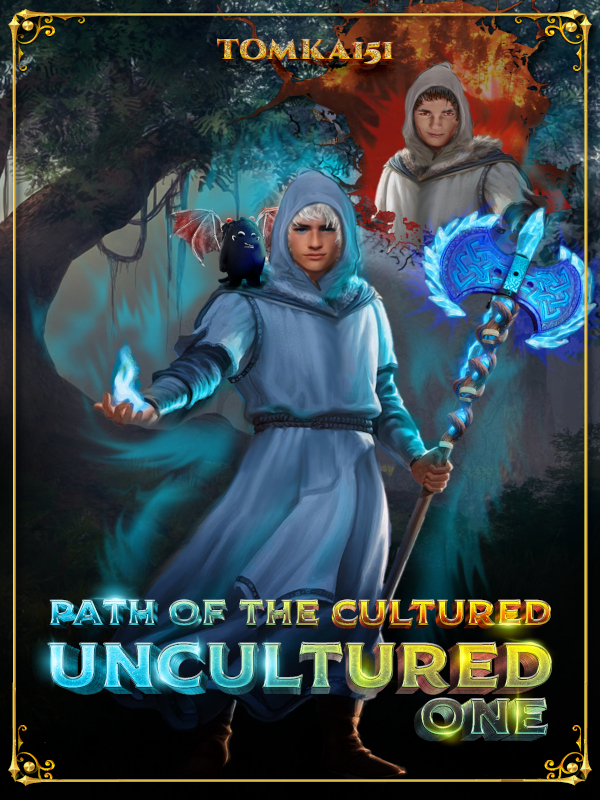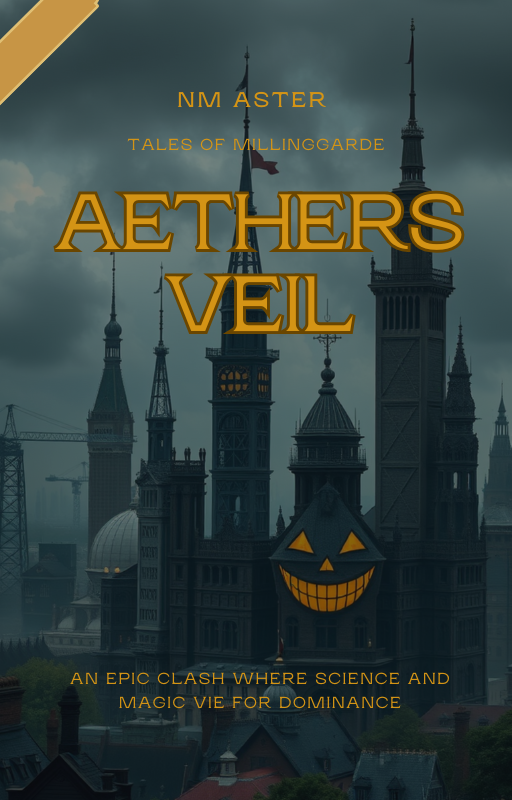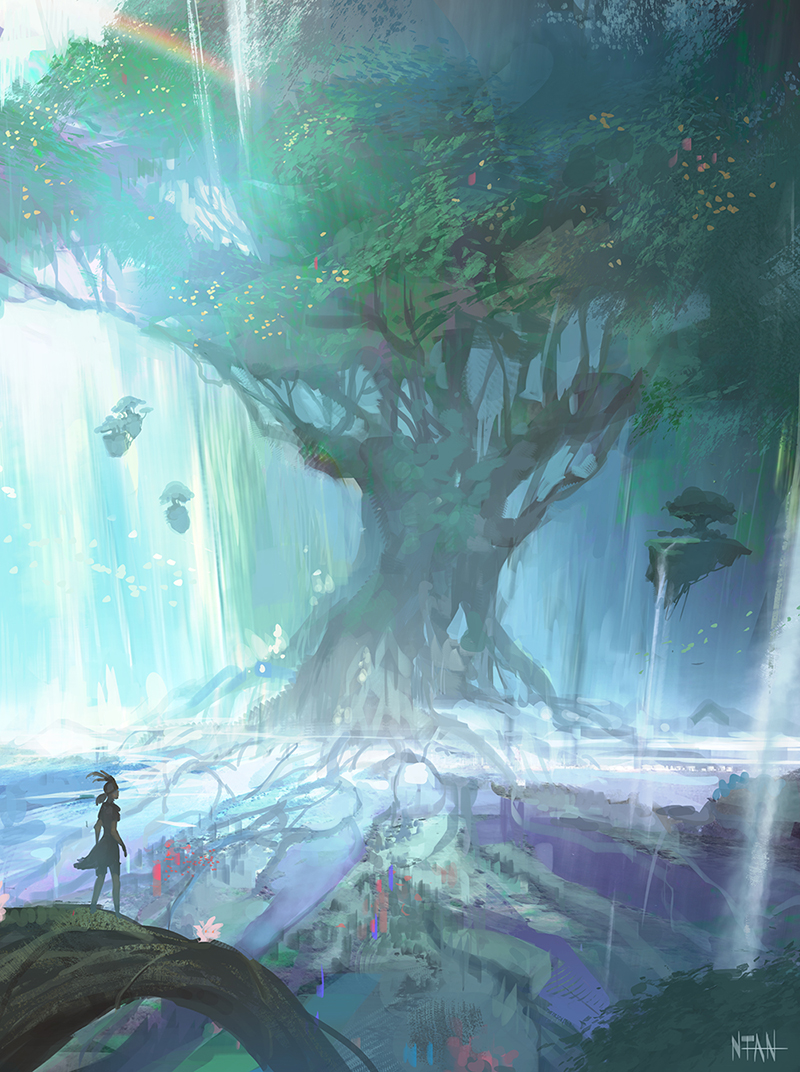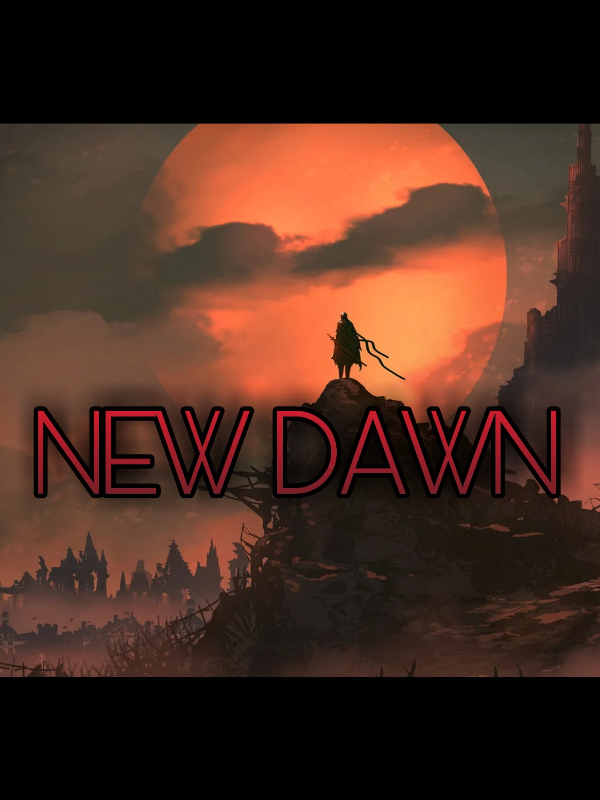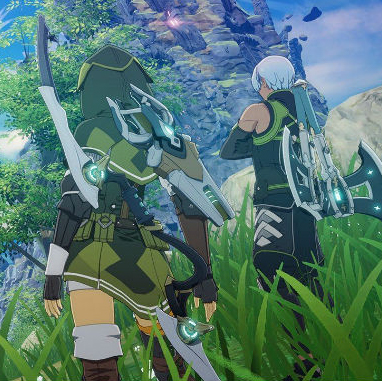Hundreds of years before the fall of Vultheras, the fortress city that would become the capital of Bastilhas was called Yamahei-Zei and held by Zentai, a colony of the Empire of Yamahei. The Yameans were fierce and clever, but they were few and far from home. In the wake of the war that saw Zentai destroyed, the fortress and the surrounding land fell into native hands. It was up to the conquerors to decide how to split the spoils.
A summit between the Barusians, the Echokhet, and the disparate tribes west of the mountains, had four major outcomes. First, the fertile lands south west of the shield mountains were given to the Kingdom of Baru. The plains to the south east were then given to the Echokhet for their migrations. The land to the west, which included the north fjord beyond the mountains, was given to the western tribes to settle to their satisfaction. Finally, a deal was made with regard to the mountains themselves, the valuable lands they protected, and the city of former Zentai.
Instead of splitting the land or claiming it, six heroes were selected to form an independent kingdom: Two men of Barusian descent, a man and woman of Echokhetan descent, and two women from the western tribes. In a gesture of extraordinary charity, the leaders of the summit also selected a Yamean man to be the seventh member of a group they called the Bast, or Guardian in the old tribal tongue.
For centuries they knew power and prosperity, but when the Atilonians invaded, the descendants of those that stormed Yamahei-Zei finally understood fear as the Yameans had. Trapped behind their walls, cut off by land and sea, the citizens of Vultheras could only watch and make ready.
While King Kalen sent for his daughter, and the Atilonians trained their guns on his magic barrier, the lords and ladies of the seven houses held court in his opulent throne room; a marble colonnade, where the floor was rich with white marble tiles. A long, luxurious, red carpet led from a towering door to the steps to the king’s throne, and all along the way were tapestries that hung from the columns. They told noble legends of Bastilhas, embroidered on their silken fabric.
One tapestry told of a battle between a swordsman and a black dragon with white eyes. The warrior stood in the foreground with a sword in their hands, and in the base of its blade were the seven gems colored orange, red, green, yellow, purple, and blue. Above the battle was the heraldry of House Eddleston: A single curved sword colored red, separating a white and black background. In the base of its blade were seven holes, alternating in white and black shades.
Another tapestry told of the capture of Yamahei, where a Yamean castle burned in blue fire while men in black armor fought in the foreground. The heraldry above was that of Great House Darigon: The gray head of a dragon over a background that could be interpreted as the blue waves of a stormy sea, or the blue flame of that legendary fire. The dragon’s single eye was blue and the ‘sky’ behind it was checkered in red and white squares.
The heraldry of each house was inspired by the legend of their founding ancestor, what proved their families were the descendants of heroes, and thereby showed the noble families were led by living legends. Those gathered at the foot of the Darigon throne were powerful men and women with unique complexions and manners. House Wensenset, for instance, was founded by the Echokhet hero and its current matriarch, the revered Duchess Ashland Wensenset was present at court.
She was the very depiction of nobility: A refined, lithe, black woman with a smooth, hairless head and sharp cheek bones. Her black eyes were usually closed, but a master of the Sight didn’t need eyes to see. While the tribal Echokhet struggled with their power, House Wensenset—or Ravenseye, in plain speech—sought to tame it. And so, her white robes, thick around her long neck, appeared to scintillate with an inner light; anima, that quintessential spell, provided for her comfort and guidance.
Beside her stood Duke Kirk Vinderberg, patriarch of House Vinderberg, founded by a heroine from the western tribes. That elderly man, with lines of age drawn deep in his rose-colored cheeks, was the same age as duchess Wensenset. Where she was a powerful necromancer, he was the descendant of a woman whose legend was of kindness and generosity, and so his mana was thin. Although they were not powerful wizards, the Vinderbergs had since become a mercantile house, and it was they who owned the largest dock in Vultheras.
That wealth showed in Lord Vinderberg’s posh gray dress suit, as the aging patriarch liked the fashion himself as a soldier. On his breast was a long display of his many medals and ribbons, from wars at the behest of Bastilhas, or from a life time of adventure as a mercenary. Beneath his short white hair and thin beard were the bright, brown eyes of a fierce man that had as much in common with wolves as he did men.
And above them all, on his mithril throne, hands clutched tightly on its arms shaped as the heads of yawning dragons, sat Kalen Darigon. Kalen was an enormous individual at nearly seven feet tall, with broad shoulders and muscular arms. He owed that imposing stature to his heroic ancestry. His light beige skin, his sleek jet-black hair, and his dark brown eyes echoed the Barusian kings of old. Although his age showed in the creases of his face, it did not diminish his grandeur.
Slowly, he rose from his regal seat and began down the marble steps. The white-fur cloak of an ancient bear swayed with his every step; hung heavily around the shoulders of his royal uniform. Its coat was gray and laced with gold thread, and fastened with buttons of that precious metal. The dress pants ended in black shoes that clapped loudly on the royal marble, and Kalen’s large hands were covered by clean white gloves.
One gloved hand rested at his side, but the other fell on the pommel of a dragon-handled longsword. It rattled in its scabbard, hung heavy from Kalen’s belt like the bear’s own fang, and was forged as a set with Hannah’s lion-handled rapier. Like the Lion, the Dragon was fashioned of inferior steel, but its powerful enchantments made it a peerless weapon, challenged and surpassed only by the heirloom of House Eddleston.
His feet came to rest on the marble floor and he set his stern eyes on the assembled nobles. There were no bards or tables for feasting, no plates for the eyes or ears. The small court he called was not in celebration, or to discuss the matters of the realm. It was to deliver grim news.
“I see we have gathered,” he said. His eyes surveyed an array of faces, those of house leaders and their closest family, their sons and daughters. Their grandchildren, and those spouses that were not of direct blood to one of the seven houses, had already been sent to Mathematzen for protection. The court nobles that remained were therefore those bound by an inescapable duty to Bastilhas.
“All except for Eddleston,” Vinderberg grumbled.
“He’s fetching my last guest,” the king said. “But since this won’t be news to him, I’m content to continue in his absence.
“At dawn, just after the seventh bell, observation posts throughout the city confirmed that the Atilonian navy was on the horizon. The latest estimate, as of this hour, was of twelve iron-clad battleships, fifteen heavy cruisers, eleven fast cruisers, and twenty-four destroyers. They also appear to be accompanied by supply and assault boats. Their intention to land by sea is clear.”
There were no gasps in the chamber, no trembling hands or rounded eyes. Duke Vinderberg sucked in his stomach and straightened his shoulders, and the duchess Wensenset cupped her hands while she made a slight frown. The dukes and duchesses of the seven houses, and those sons and daughters raised so as to someday replace their grandiose parents, hardly bat an eye.
“So, it’s time,” said Vinderberg.
“How long can we expect the shield to last?” Wensenset asked in her gentle manner.
“Not long, I’m told,” the king said. “And so, we must be ready to make good on our promise.”
Duke Vinderberg made a pithy laugh. “Hah! I’ve been ready,” he said. “I always have been.”
Wensenset made a shallow nod. “Then, your intention is to reveal the Oath of Bast to our children, before their time?”
“Their time is now,” Kalen said. “While our people take safety with Mathematzen, we—the Bast and our successors—cannot abandon this city. Your children deserve to know why they cannot run.”
The king turned his head and nodded to a guard posted by the wall. The man in a heavy gray greatcoat delivered a sharp salute and turned to exit through a wooden door. The sound of its closing echoed as other side doors opened and shut in quick succession. The guards posted throughout the throne room left the chamber.
The king then turned toward the stairs of his own throne. “User login,” he said.
“User identification required,” the synthetic, feminine voice of an ancient system responded through the stairs. The floor ahead of the king’s feet rumbled and a small marble slab lowered and slid out of sight. From the shadows beneath the floor a black tablet emerged on a thin pole, coiled by colored wires.
Kalen removed his right glove and set his hand on the tablet. Green light flashed over his palm. “User identified,” the system said and its palm reader blinked an approving green. “Welcome Prime Administrator.”
“Instruction: Open primary access,” the king ordered as the palm reader descended.
“Acknowledged.”
The stairs rumbled and hydraulic levers hissed underground. One by one the steps sunk into the floor until a short hall and its metallic door were revealed behind the mithril throne. Kalen threaded his fingers back into his glove and pulled it taut around his hand.
“This way,” he said and began toward the door. As he approached, it parted in half and slid open, into recesses in the wall.
The room behind the door was every bit as odd as the door itself. It was small and circular, plated in metal, and painted white. Clear panels flickered and shined in the ceiling, activated one after the other when Kalen stepped inside. They illuminated a round podium surrounded by oval-shaped white chairs.
“Stand wherever you like,” the king said to the nobles that filtered in behind them. “There are only seven chairs.”
The house leaders took seats around the podium and their children stood around them, either close at hand or near the walls. “Instruction: Seal briefing room,” the king said to the automated system.
The entrance clunked as the door closed shut.
“Instruction: Dim lights,” the king said.
The light panels above dimmed into warm lights that cast large shadows.
King Kalen stood in front of his chair, at the foot of the round podium. His eyes surveyed the faces of those present, scanned again for fear, doubt, and anxiety. What he saw were the stern and the curious, strong and light as Bastan mithril. He gave an affirming nod and lowered his head.
The king took a breath. “For those young heirs who are about to be inducted into the Bast, I will say that the history of Bastilhas is not a lie,” he began. “But certain elements of our origin were omitted from the scholar’s curriculum. What you were taught was that eight-hundred years ago the Empire of Yamahei founded Vultheras as the port of Yenzei. They expanded into the surrounding hills and mountains, and then out into the plains, where they encountered our ancestors. What brief skirmishes they suffered shocked them, as the Yameans were technologically superior in every way. Thereafter, Kingdom of Baru, the Echokhet, and the western tribes formed an alliance to defeat the Yamean colonists. You’ve heard that before. It’s all true.
“What our history doesn’t cover are the Olmenites that inhabited Vultheras Isle for more than two-hundred years before Yamahei arrived. We do not teach that the Yameans came in search of this island and did not happen on it serendipitously. The reason our ancestors joined as one to capture Yamahei-Zei is because they discovered what the Yameans already knew.”
Kalen’s hand touched the side of the podium and it glowed in the center. A holographic projection appeared overhead. By drawing a circle, the king expanded the projection so it could be seen clearly.
“This is an image of the subterranean tunnels that exist beneath Vultheras,” Kalen said. “The red dot indicates our exact position. You will see that they extend more than a mile below sea level and some of the caverns are wider than Vultheras Island itself. The region beneath our feet, what Mathematzen has claimed their own, is a labyrinth of ancient ruins. Within lay a trove of technology far surpassing anything from Atilonia or beyond.
“While our ancestors tried to stop Yamahei from abusing that treasure, the Yameans became desperate, and they released something terrible.” Kalen’s voice weakened and a pall fell across the leaders seated in their chairs.
The king touched the podium and the hologram changed from a map to the badly-distorted image of a battle. In the foreground, among glitched lines, were seven warriors in traditional Yamean battle dress. They appeared to hold long red swords as they stood amidst the blue fire of a burning Yamean castle. Ahead of the warriors was a black beast so large it filled out the background. Its pair of white eyes glared spitefully at the Yameans, and so haunting were those moon-like slits that the house members hushed their breaths.
“This is only image we have, captured by an ancient security measure, moments before the castle’s destruction,” the king continued. “The written testament of our forebears allege that the creature stood more than seventy stories tall and towered over the fortress. It killed Yamean, Barusian, Echokhetan, and all indiscriminately. Its only challenge came from seven Yameans who put the world before their own country. When the battle was through, there was little left but the walls of a ruined fortress, and one man among the ash.”
The king pressed on the podium and shutdown the hologram. “Instruction: Increase light,” he said and as the podium flickered off, the clear-panel lights brightened.
“This is why the Bast was formed,” King Kalen said to the house heirs. “From among the Barusians, the Echokhetans, and the western tribes your ancestors were chosen. The Oath of Bast, sworn on Gaia’s name, is an oath to prevent a second crisis—another monster—made by the greed of men. It’s promise that you will give your life for the good of all.
“Now it is time to live up to your potential as nobles of Bastilhas; take the oath you were born to swear. The barbarians are at the gates, and they don’t know what evil they tempt. Before we fall, we will seal the sub-levels and deny Atilonia the power they crave.
“We will protect this world.”




